Therapy For Anxiety
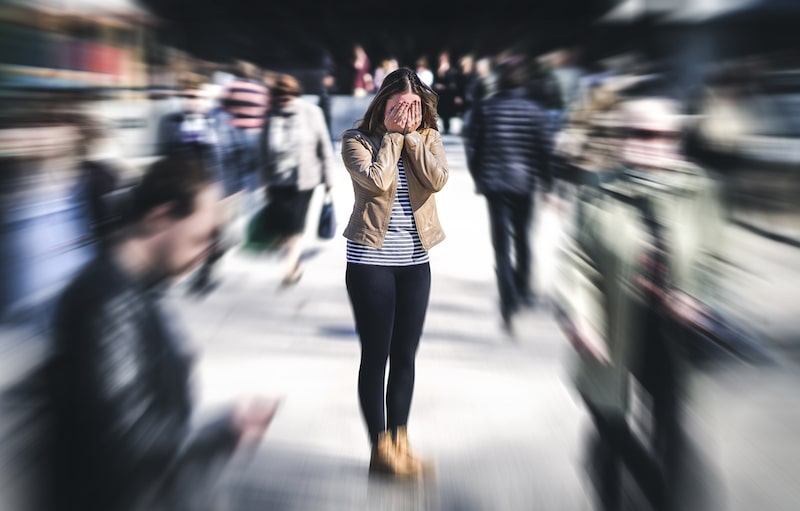
Anxiety is one of the leading mental health problems around the world and the incidence of anxiety is still rising, especially among youth. Nearly one-third of adults in the U.S. will grapple with out-of-control anxiety at some point in their life. One often-cited reason for the general rise in anxiety is the burden of uncertainty in almost every domain of modern life. Whether its unprecedented political instability, the war in Ukraine, terrorism, gun violence, stock market volatility, climate change, bigotry, supply chain issues or suffocating inflation, we are frequently reminded of the turbulent nature of the world we live in. Comforting predictability has been in short supply ever since the COVID-19 pandemic turned the world upside down back in March of 2020, and it’s anyone’s guess what tomorrow will bring. Uncertainty doesn’t cause anxiety, but it provides breeding grounds for it.
Anxiety is a normal emotional state that our species experiences when faced with either real or perceived threats and dangers. Experiencing occasional anxiety is a normal part of life and it is neither possible nor desirable to eliminate anxiety entirely, as it plays a crucial role in keeping us alert and alive. However, people with anxiety disorders frequently have intense, excessive and persistent worry and fear about everyday situations. These feelings of anxiety and panic interfere with daily activities, are difficult to control, are out of proportion to the actual danger and can last a long time. Anxiety becomes a disorder when it consumes too much mental activity or interferes with activities and performance. Symptoms may start during childhood or the teen years and continue into adulthood. Anxiety is often accompanied by depression, and the two share many symptoms. Anxiety can be treated successfully using therapy, medication, or both. Additionally, lifestyle measures, such as regular exercise and deep breathing, are extremely important in managing anxiety.
What are the symptoms of an anxiety disorder?
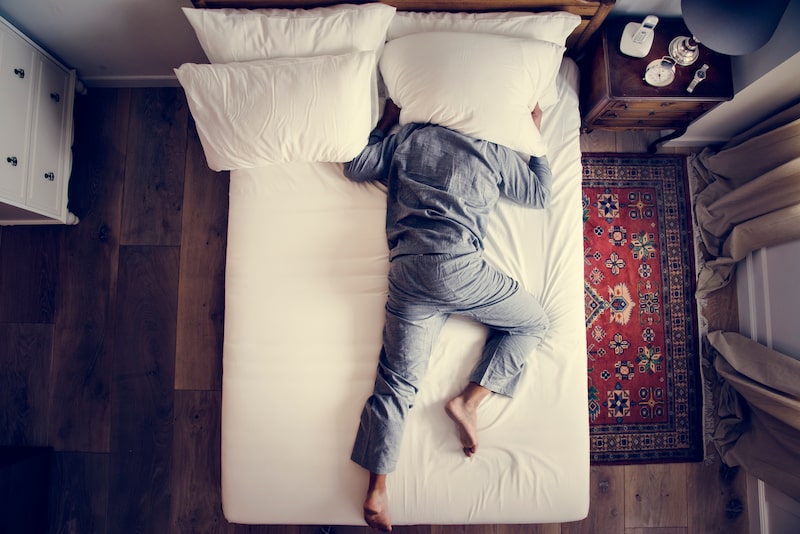
Anxiety declares itself not just with endless loops of worry in the mind but with heart-pounding discomfort in the body, from general jumpiness and trembling to shortness of breath. The physical symptoms of anxiety can be highly misleading. Not only are they often misinterpreted as signs of a heart attack and impending doom—a cardinal feature of panic attacks—but they often lead to odysseys of medical misdiagnosis. Physical symptoms may be assumed to be the result of physical causes, and in a misdirected search for them, the true source of the problem can continue undiscovered and unaddressed.
Physical symptoms:
- Cold or sweaty hands
- Dry mouth
- Heart palpitations
- Nausea
- Numbness or tingling in hands or feet
- Muscle tension
- Shortness of breath
Mental symptoms:
- Feeling panic, fear and uneasiness
- Nightmares
- Repeated thoughts or flashbacks of traumatic experiences
- Uncontrollable, obsessive thoughts
Behavioral symptoms:
- Inability to be still and calm
- Ritualistic behaviors, such as washing hands repeatedly
- Trouble sleeping
What are the types of anxiety disorders?
- Generalized anxiety disorder (GAD)
- Panic Disorder
- Phobias
- Social anxiety disorder
- Agoraphobia
- Separation anxiety disorder
- Anxiety disorder due to a medical condition
Reach Out Today About Anxiety Therapy!
What is generalized anxiety disorder (GAD)?
With GAD, you may feel extreme and unrealistic worry and tension — even if there’s nothing to trigger these feelings. Most days, you may worry a lot about various topics, including health, work, school and relationships. You may feel that the worry continues from one thing to the next. Physical symptoms of GAD can include restlessness, difficulty concentrating and sleeping problems.
What is a panic disorder?
If you have a panic disorder, you get intense, sudden panic attacks. These attacks often feature stronger, more intense feelings than other types of anxiety disorders. The feelings of terror may start suddenly and unexpectedly or they may come from a trigger, like facing a situation you dread. Panic attacks can resemble heart attacks. Panic attacks are very upsetting and people with panic disorder often spend a lot of time worrying about the next panic attack. If there’s any chance you’re experiencing a heart attack, go to the emergency room. It’s better to error on the side of caution and have a healthcare professional check you.
During a panic attack, you may experience:
- Sweating
- Heart palpitations (feeling like your heart is pounding)
- Sensations of shortness of breath or smothering
- Trembling or shaking
- Chest pain
- Feeling of choking, which can make you think you’re having a heart attack or “going crazy”
- Nausea or abdominal distress
- Feeling dizzy, unsteady, lightheadedness, or faint
- Derealization (feelings of unreality) or depersonalization (being detached from oneself)
What are phobias?
Phobias are an intense fear of certain situations or objects. Some of these fears may make sense, such as a fear of snakes. But often, the level of fear doesn’t match the situation. Like with other anxiety disorders, you may spend a lot of time trying to avoid situations that may trigger the phobia. Some specific phobias include fear of:
- Insects, Animals, Reptiles
- Blood
- Flying
- Heights
- Injections (shots)
What is social anxiety disorder?
Healthcare providers used to call this condition social phobia. You may have overwhelming worry and self-consciousness with daily social situations. You may worry about others judging you or you may be anxious that you’ll embarrass yourself or open yourself up to ridicule. People with social anxiety disorder may avoid social situations entirely.
What is agoraphobia?
If you have agoraphobia, you may have an intense fear of being overwhelmed or unable to get help. In severe situations, a person with agoraphobia may not leave the house at all. They’re so terrified of having a panic attack in public that they prefer to stay inside. Usually, you have a fear of two or more of these environments:
- Enclosed spaces
- Lines or crowds
- Open spaces
- Places outside your house
- Public transportation
What is separation anxiety disorder?
This condition mostly happens to children or teens, who may worry about being away from their parents. Children with separation anxiety disorder may fear that their parents will be hurt in some way or not come back as promised. It happens a lot in preschoolers. But older children and adults who experience a stressful event may have separation anxiety disorder as well.
What is an anxiety disorder due to a medical condition?
Careful and thorough medical evaluation must be conducted to determine the presence of the medical condition that leads to the anxiety. Some of the medical conditions that may be involved in this disorder include hyperthyroidism, hypothyroidism, hypoglycemia, congestive heart failure, heart arrhythmias, COPD, pneumonia, and hyperventilation. There must be a close association between the medical condition and anxiety in order for this diagnosis to be appropriate.
Who is at risk for anxiety disorders?

A mix of genetic and environmental factors can raise a person’s risk for developing anxiety disorders. You may be at higher risk if you have or had:
- Certain personality traits, such as shyness or behavioral inhibition — feeling uncomfortable with, and avoiding, unfamiliar people, situations or environments.
- Stressful or traumatic events in early childhood or adulthood.
- Family history of anxiety or other mental health conditions.
- Certain physical conditions, including thyroid problems and heart arrythmias (unusual heart rhythms).
Risk factors
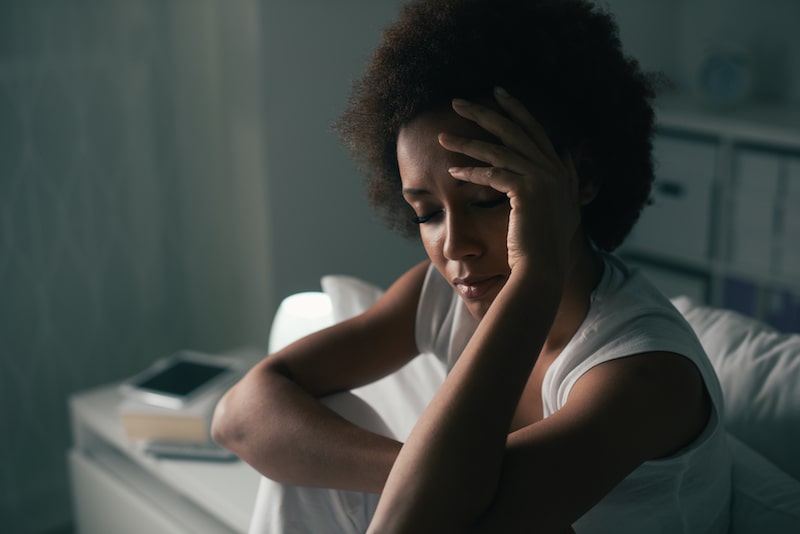
These factors may increase your risk of developing an anxiety disorder:
- Trauma. Individuals who endured abuse or witnessed traumatic events are at higher risk of developing an anxiety disorder at some point in life. Adults who experience traumatic events, as we all do, can develop anxiety disorders.
- Stress due to an illness. Having a health condition or serious illness can cause significant worry about issues such as your treatment and your future.
- Stress buildup. A big event or a buildup of smaller stressful life situations may trigger excessive anxiety — for example, a death in the family, work stress or ongoing worry about finances.
- Personality. People with certain personality types are more prone to anxiety disorders than others are.
- Other mental health disorders. People with other mental health disorders, such as depression, often also have an anxiety disorder.
- Having blood relatives with an anxiety disorder. Anxiety disorders can run in families.
- Drugs or alcohol. Drug or alcohol use or misuse or withdrawal can cause or worsen anxiety.
Complications
Having an anxiety disorder does more than make you worry. It can also lead to, or worsen, other mental and physical conditions, such as:
- Depression (which often occurs with an anxiety disorder) or other mental health disorders
- Substance misuse
- Trouble sleeping
- Digestive or bowel problems
- Headaches and chronic pain
- Social isolation
- Problems functioning at school or work
- Poor quality of life
- Suicide
How to treat anxiety
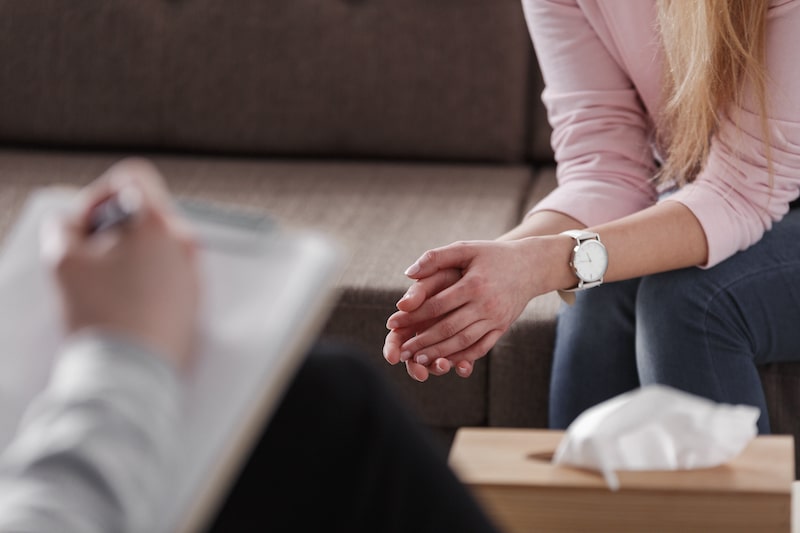
Anxiety disorders can often be addressed successfully with psychotherapy, alone or in combination with medication. The first-line treatment for anxiety is some form of cognitive behavioral therapy (CBT). Practical and present-oriented, therapy helps people recognize the cognitive distortion that anxiety forces on them, helps them confront their fears safely, and provides techniques for reversing reactivity. Like all treatment, the goal is to restore calm. But it does much more. It helps people regain control over themselves when worry threatens to overtake them. Therapy has the added value of taking place in the presence of a real human being. As social creatures, we have nervous systems exquisitely attuned to the influence of others. The presence of a helpful person constitutes a powerful signal of safety, directly and deeply countermanding the (mistaken) alarms of threat that define the disorder of anxiety.
Other types of therapy that are often used to treat anxiety include:
- Mindfulness-based cognitive therapy (MBCT): MBCT brings mindfulness practices to cognitive behavioral therapy. It has been shown to reduce anxiety by helping people increase their self-awareness in therapy.
- Dialectical behavioral therapy (DBT): This type of therapy is often used for “difficult to treat” conditions. It may help people with severe anxiety stabilize, explore their anxiety, improve their quality of life, and maintain a sense of well-being.
- Psychodynamic therapy: Psychodynamic therapy can help people with anxiety by bringing their attention to their own thought patterns and habits. It may also encourage delving into the subconscious to get to the root cause of the anxiety.
- Eye movement desensitization resolution (EMDR): EMDR uses eye movement techniques to help people access difficult memories and can be helpful with treating anxiety.
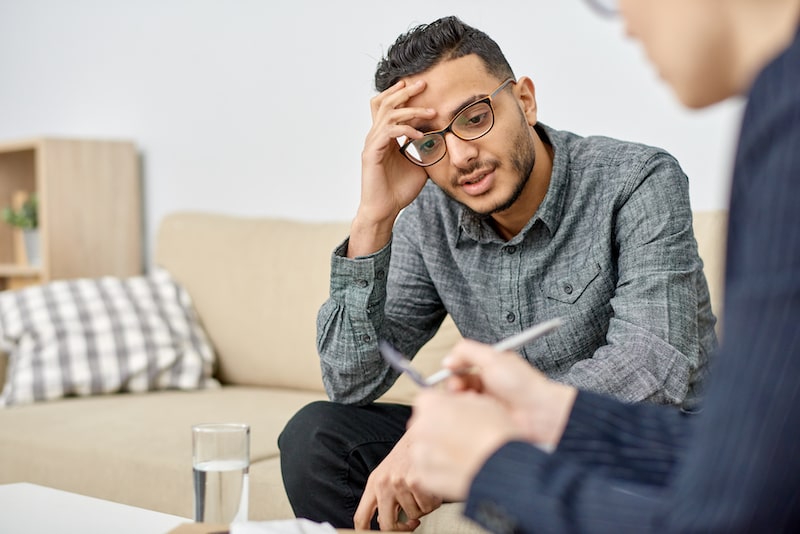
Your worries may not go away on their own, and they may get worse over time if you don’t seek help. See a mental health provider before your anxiety gets worse. It’s easier to treat if you get help early. If you think you have anxiety, there is never a bad time to reach out for help. Below are some signs it might be time to seek professional help for anxiety:
- Your anxiety is negatively impacting relationships you care about
- You feel like you can’t be in public or around other people
- You are having trouble sleeping
- Anxiety makes it hard to do daily tasks like eating, cleaning, going to work, or childcare
- Your fear, worry or anxiety is upsetting to you and difficult to control
- You feel depressed, have trouble with alcohol or drug use, or have other mental health concerns along with anxiety
- You have suicidal thoughts or behaviors — if this is the case, seek emergency treatment immediately

Anxiety is a common condition that affects millions of Americans every year. The good news is that anxiety is treatable. At Intown Counseling & Wellness, we have professional, licensed, and experienced therapists you can trust. Come into our beautiful office in the Morningside neighborhood, near Emory and Virginia-Highlands or schedule a live session at a time that’s convenient for you using your phone, tablet, or computer.
Anxiety undermines functioning in every domain of life, including work and family. The sooner you get help, the sooner you can feel better and minimize the disruptive impact of anxiety.
Lifestyle changes that can reduce anxiety
Lifestyle changes also play an important role in the long-term management of anxiety. Sometimes, a person in therapy might even work with their therapist to create a plan that includes some of these lifestyle changes. Keep in mind that some of these lifestyle changes may not be for everyone.
Many of these lifestyle changes are self-care habits and include:
- Keeping a journal
- Meditation
- Practicing mindfulness
- Exercise
- Balanced diet
- Yoga
- Getting enough sleep
- Cutting out or reducing intake of stimulants like caffeine
How can I best cope with an anxiety disorder?
There are several steps you can take to cope with anxiety disorder symptoms. These strategies can also make your treatment more effective:
- Explore stress management: Learn ways to manage stress, such as meditation.
- Join support groups: These groups are available in-person and online. They encourage people with anxiety disorders to share their experiences and coping strategies.
- Get educated: Learn about the specific type of anxiety disorder you have so you feel more in control. Help friends and loved ones understand the disorder as well so they can support you.
